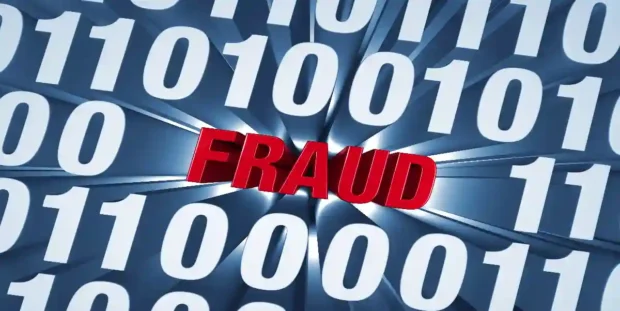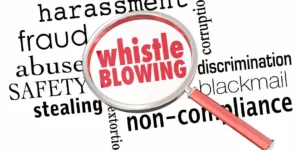Introduction to the Neogen Class Action Lawsuit
The Neogen class action lawsuit seeks to represent purchasers of Neogen Corporation (NASDAQ: NEOG) common stock between January 5, 2023 and June 3, 2025, inclusive (the “Class Period”). Captioned Operating Engineers Construction Industry and Miscellaneous Pension Fund v. Neogen Corporation, No. 25-cv-00802 (W.D. Mich.), the Neogen class action lawsuit charges Neogen and certain of Neogen’s top executives with violations of the Securities Exchange Act of Securities Exchange Act of 1934.
If you suffered substantial losses and wish to serve as lead plaintiff of the Neogen class action lawsuit, or just have general questions about you rights as a shareholder, please contact attorney Timothy L. Miles of the Law Offices of Timothy L. Miles, at no cost, by calling 855/846-6529 or via e-mail at tmiles@timmileslaw.com.
Lead plaintiff motions for the Neogen class action lawsuit must be filed with the court no later than September 16, 2024.
Please see the various investor resources below for an additional wealth of information.

The Importance of Class Action Lawsuits like the Neogen Lawsuit
Class action lawsuits serve as a powerful tool for investors, allowing them to band together to seek justice against corporations that may have engaged in fraudulent activities. This collective approach not only enhances the efficiency of the legal process but also ensures that the interests of all affected investors are represented. In the case of the Neogen lawsuit, the stakes are high, as the outcome could significantly impact the company’s future and the financial recovery of its investors.
Neogen, together with its subsidiaries, engages in the development, manufacture, and marketing of various products and services dedicated to food and animal safety. According to the complaint, in December 2021, it was announced that Neogen would merge with the Food Safety Division of the 3M Company, with the deal closing in September 2022.
The Neogen class action lawsuit that defendants throughout the Class Period made false and/or misleading statements and/or failed to disclose that: (i) defendants led investors to believe that Neogen’s integration with 3M was progressing much better than it actually was; and (ii) even when Neogen was forced to reveal that certain “inefficiencies” arose as a result of the integration, defendants downplayed them and assured investors that they were fully aware and committed to resolving them quickly.
The Neogen class action lawsuit further alleges that on January 10, 2025, Neogen announced its preliminary second quarter of 2025 financial results, revealing, among other things, that:
- GAAP net income in the quarter was significantly negative due to a $461 million non-cash goodwill impairment charge related to the 3M acquisition;
- Neogen cut its fiscal year 2025 revenue and EBITDA guidance; and
- Neogen concluded that, as of November 30, 2024, Neogen had material weaknesses in its internal control over financial reporting. On this news, the price of Neogen common stock fell more than 5%, according to the complaint.
Then, on April 9, 2025, the Neogen class action lawsuit alleges that Neogen announced its third quarter of 2025 financial results, reporting a loss of $11 million, or $0.05 per share, compared with a loss of $2 million, or $0.01 per share, a year earlier. Neogen further announced that revenue fell 3.4% to $221 million which had been negatively impacted by integration issues, Neogen was cutting its fiscal year 2025 revenue and EBITDA outlook, capital expenditures were expected to be $100 million as a result of lowered adjusted EBITA and a “pull-forward of . . . integration capex into fiscal 2025,” and that CEO, defendant John Adent, would be stepping down. On this news, the price of Neogen common stock fell 28%, according to the complaint.
Finally, on June 4, 2025, Neogen revealed that it expected “EBITDA margin to probably be around the high-teens” which represented a considerable drop from the previous quarter’s profit margin of 22%, blaming the expected shortfall on “elevated . . . inventory write-offs,” according to the complaint. The Neogen class action lawsuit alleges that on this news, the price of Neogen common stock fell more than 17%.

The Role of the PSLRA in the Organon Lawsuit
The Private Securities Litigation Reform Act (PSLRA) imposes stringent requirements on plaintiffs in securities fraud cases. This legislation aims to prevent frivolous lawsuits by mandating that plaintiffs provide detailed allegations and evidence to support their claims.
Understanding the PSLRA’s implications is crucial for any investor involved in the Neogen class action lawsuit, as it sets the stage for the legal strategies that will follow.
Common Grounds for a Motion to Dismiss the Neogen class action lawsuit
When faced with a securities fraud class action lawsuit, defendants often file a motion to dismiss as a preliminary defensive strategy. This motion seeks to convince the court that the plaintiffs’ Neogen class action lawsuit lacks legal merit and should not proceed to trial. Several common grounds for dismissal can pose significant challenges for plaintiffs.
Failure to State a Claim in the Neogen class action lawsuit Lawsuit
One of the most prevalent grounds for dismissal is the assertion that the plaintiffs have failed to state a claim upon which relief can be granted. In this scenario, defendants argue that even if all allegations in the complaint are true, they do not constitute a violation of securities laws. Plaintiffs must demonstrate that their claims, if proven, would establish a legal basis for their allegations.
Lack of Specificity in the Neogen Lawsuit
Another frequent argument for dismissal is the lack of specificity in the plaintiffs’ allegations. The PSLRA requires that securities fraud claims be pleaded with particularity, meaning that plaintiffs must provide detailed facts to support their claims rather than relying on vague assertions. Defendants often contend that the plaintiffs’ complaints fail to meet these heightened standards, which can lead to dismissal.
Insufficient Demonstration of Loss Causation in the Neogen Lawsuit
Defendants may also argue that plaintiffs have not Neogen class action lawsuit, which refers to the causal link between the defendants’ fraudulent conduct and the plaintiffs’ financial losses. Plaintiffs must show that their losses were directly caused by the defendants’ actions, rather than by external market factors. If this connection is not sufficiently established, the claims may be dismissed.

Legal Standards for Surviving a Motion to Dismiss in the Neogen Lawsuit
To successfully navigate a motion to dismiss, plaintiffs in the Neogen class action lawsuit must adhere to a series of strict legal standards. These standards are designed to ensure that only cases with merit proceed to the discovery phase and potentially to trial.
Stating a Plausible Claim Organon Class Action Lawsuit
One of the primary legal standards is the requirement to state a plausible claim for relief. Under Federal Rule of Civil Procedure 12(b)(6), the court must accept all well-pleaded allegations in the complaint as true and draw reasonable inferences in favor of the plaintiffs. However, the allegations must go beyond mere speculation and present a coherent narrative that, if proven, would constitute securities fraud.
Heightened Pleading Requirements in the in the Neogen Lawsuit
The PSLRA imposes heightened pleading requirements that necessitate specificity in allegations. Plaintiffs must detail each statement alleged to be misleading, explain why it is misleading, and provide facts supporting an inference of scienter (intent or knowledge of wrongdoing). This rigorous standard aims to filter out baseless lawsuits and ensure that only well-founded claims advance.
Establishing Loss Causation in the in the Neogen Lawsuit
In the Neogen lawsuit, plaintiffs must also demonstrate loss causation to survive a motion to dismiss. This involves showing that the defendants’ fraudulent conduct was a substantial factor in causing the plaintiffs’ financial losses. Plaintiffs must provide specific allegations linking the defendants’ actions to the economic harm suffered, which often requires a thorough analysis of market conditions and company disclosures.
Key Strategies to Overcome a Motion to Dismiss in the Neogen Class Action Lawsuit
Defeating a motion to dismiss necessitates a well-crafted strategy that addresses the specific grounds on which the motion is based. Plaintiffs in the Neogen class action lawsuit must carefully construct their arguments and provide detailed evidence to counter the defendants’ assertions.
Emphasizing Specificity and Particularity in the in the Neogen Lawsuit
One of the most effective strategies is to focus on the specificity and particularity of the allegations. Given the PSLRA’s heightened pleading standards, it is essential for plaintiffs to present detailed facts that support their claims of fraud. This includes identifying each allegedly misleading statement, explaining why it is misleading, and providing factual evidence to support the inference of scienter.
Establishing a Clear Causal Connection in the in the Neogen Lawsuit
Another critical strategy is to emphasize the causal connection between the defendants’ actions and the plaintiffs’ financial losses. Establishing loss causation is vital for surviving a motion to dismiss. Plaintiffs should present a compelling narrative that links the alleged fraudulent conduct to the economic harm suffered, potentially involving market analysis and expert testimony.
Leveraging Legal Precedents in the in the Neogen Lawsuit
Citing relevant legal precedents can also strengthen plaintiffs’ arguments. Courts often rely on past rulings to guide their decisions, so referencing cases with similar facts and legal issues where motions to dismiss were denied can bolster the plaintiffs’ position. This strategy requires thorough legal research and a deep understanding of the evolving legal landscape in securities fraud litigation.

The Importance of Pleading Specificity in the Neogen Class Action Lawsuit
In securities fraud class action lawsuits, the significance of pleading specificity cannot be overstated. The PSLRA’s heightened pleading standards necessitate that plaintiffs provide detailed and precise allegations to support their claims.
This stringent requirement is designed to filter out baseless lawsuits and ensure that only meritorious cases move forward.
Detailing Misleading Statements in the in the Neogen Lawsuit
To meet these standards, plaintiffs in the Neogen class action lawsuit must meticulously detail each allegedly misleading statement made by the defendants. This includes specifying the exact content of the statement, the context in which it was made, and the reasons why it is considered misleading. General or vague allegations are insufficient; the complaint must provide a clear and specific account of the fraudulent conduct.
Establishing Scienter in the in the Neogen Lawsuit
In addition to pinpointing misleading statements, plaintiffs must also provide factual evidence to support the inference of scienter. This refers to the defendants’ intent or knowledge of wrongdoing. Plaintiffs must present facts that demonstrate the defendants acted with fraudulent intent or were recklessly indifferent to the truth, which can include evidence of insider trading or suspicious timing of transactions.
Linking to Loss Causation
Particularity in pleading also helps establish loss causation. By providing detailed allegations that link the defendants’ fraudulent conduct to the plaintiffs’ financial losses, the complaint can demonstrate a clear causal connection. The more precise and detailed the allegations, the stronger the case for establishing loss causation and surviving a motion to dismiss.
The Role of Evidence in Overcoming a Motion to Dismiss in the in the Organon Lawsuit
Evidence plays a pivotal role in overcoming a motion to dismiss in a securities fraud class action lawsuit. While the motion to dismiss stage does not involve the full presentation of evidence as in a trial, plaintiffs must still provide sufficient factual support for their allegations to convince the court the claims in the Neogen class action lawsuit are plausible.
Utilizing Documentary Evidence in the in the Organon Lawsuit
One key aspect of evidence in this context is the use of documentary evidence to support the allegations. This can include company financial statements, press releases, regulatory filings, and other documents that contain the allegedly misleading statements. Plaintiffs should meticulously review these documents to identify inconsistencies, inaccuracies, or omissions that support their claims of fraud.
Expert Testimony in the Organon Lawsuit
In addition to documentary evidence, plaintiffs can also rely on expert testimony to bolster their claims. Experts in fields such as finance, accounting, and securities law can provide valuable insights and analysis that support the plaintiffs’ allegations. For example, a financial expert might analyze market trends and demonstrate how the defendants’ misleading statements artificially inflated the company’s stock price, leading to the plaintiffs’ losses.
Circumstantial Evidence in the Organon Lawsuit
Circumstantial evidence can also be instrumental in establishing the defendants’ intent or knowledge of wrongdoing. This can include evidence of suspicious trading activity or unusual patterns in the timing of disclosures. By presenting a compelling narrative that connects the dots between the evidence and the allegations, plaintiffs can effectively counter the defendants’ motion to dismiss.
Learning from Successful Defenses Against Motions to Dismiss
Examining case studies of successful defenses against motions to dismiss can provide valuable insights and lessons for plaintiffs in securities fraud class action lawsuits like the Organon lawsuit. The cases highlight the strategies and arguments that have proven effective in overcoming the initial procedural hurdle and allowing the lawsuit to proceed.
The Enron Corporation Case
In the Enron Corporation securities fraud litigation, plaintiffs alleged that executives engaged in widespread accounting fraud, leading to significant financial losses for investors. The defendants filed a motion to dismiss, arguing that the plaintiffs’ allegations were insufficiently specific. However, the plaintiffs countered by providing detailed evidence of the fraudulent accounting practices, including internal documents and whistleblower testimony. The court denied the motion to dismiss, allowing the case to proceed.
The WorldCom Litigation
In the WorldCom securities litigation, plaintiffs alleged that executives engaged in fraudulent accounting practices to inflate the company’s financial results. The defendants moved to dismiss, contending that the plaintiffs had not adequately pleaded scienter. The plaintiffs overcame this challenge by presenting detailed evidence of the executives’ involvement in the fraudulent scheme, including internal emails and memos. The court found that the plaintiffs’ allegations were sufficiently specific, denying the motion to dismiss.
The Lehman Brothers Case
The Lehman Brothers litigation involved claims that the company engaged in deceptive practices to mask its financial instability. The defendants sought dismissal on the grounds that the plaintiffs had not established loss causation. The plaintiffs successfully countered this argument by presenting a detailed analysis of the market impact of Lehman’s fraudulent conduct, including expert testimony linking the misleading statements to the plaintiffs’ financial losses. The court denied the motion to dismiss, allowing the case to proceed.
Conclusion and Next Steps for Plaintiffs in the Organon Lawsuit
Surviving a motion to dismiss in a securities fraud class action lawsuit is a critical milestone that can determine the trajectory of the litigation. Plaintiffs in the Neogen class action lawsuit must navigate a complex web of legal standards, procedural requirements, and strategic considerations to effectively counter the defendants’ efforts to have the case thrown out.
Crafting a Persuasive Response
To enhance their chances of theh Neogen class action lawsuit surviving the motion to dismiss, plaintiffs should focus on crafting a persuasive response that meets the stringent requirements of the law. This involves providing detailed and specific allegations that support their claims of fraud, establishing a clear causal connection between the defendants’ actions and their financial losses, and leveraging recent legal precedents to bolster their arguments.
Gathering Compelling Evidence
Next steps for plaintiffs include thoroughly reviewing and strengthening the Neogen class action lawsuit, gathering and presenting compelling evidence, and preparing for the discovery phase. This may involve collaborating with legal experts, financial analysts, and other professionals to build a robust case that can withstand the defendants’ challenges.
Staying Informed about the Organon Lawsuit
Finally, staying informed about the latest developments in securities law and learning from successful defenses in similar cases can position plaintiffs for success in their pursuit of justice. By understanding the nuances of the Organon Class Action Lawsuit and employing effective strategies, plaintiffs can navigate the complexities of securities fraud litigation and seek accountability for the alleged misconduct.
Frequently Asked Questions About the Neogen Lawsuit
What initiated the Neogen lawsuit?
The lawsuit was initiated by investors alleging that Neogen provided misleading information regarding its financial health and operations, resulting in financial losses.
How can I join the Neogen lawsuit?
If you purchased shares during the class period and suffered a loss, then you are automatically a member of the class and do not need to do anything at this point unless you are considering moving for lead plaintiff.
What are the potential benefits of a Neogen lawsuit?
Class action lawsuits allow individual investors to collectively seek justice and compensation, which might be challenging to pursue individually. They also promote corporate accountability.
How long will the Neogen lawsuit take to resolve?
The duration of class action lawsuits can vary significantly, depending on the complexity of the case, legal strategies, and whether settlements are reached. It could take several months to years.
Contact Timothy L. Miles Today About an Neogen Class Action Lawsuit
If you suffered substantial losses and wish to serve as lead plaintiff of the Neogen class action lawsuit, or just have general questions about you rights as a shareholder, please contact attorney Timothy L. Miles of the Law Offices of Timothy L. Miles, at no cost, by calling 855/846-6529 or via e-mail at tmiles@timmileslaw.com. (24/7/365).
Timothy L. Miles, Esq.
Law Offices of Timothy L. Miles
Tapestry at Brentwood Town Center
300 Centerview Dr. #247
Mailbox #1091
Brentwood,TN 37027
Phone: (855) Tim-MLaw (855-846-6529)
Email: tmiles@timmileslaw.com
Website: www.classactionlawyertn.com
Facebook Linkedin Pinterest youtube





